Many are curious if ‘Does Sleeping Naked Increase Testosterone?’ after TikTok users suggested it as a natural method, ditching pajamas for potential hormonal benefits.
While some believe that exposure to cold can briefly elevate testosterone levels, experts doubt the efficacy of merely sleeping naked for this purpose.
Nonetheless, choosing to sleep without clothes may offer other advantages.
Does Sleeping Naked Increase Testosterone?
Research has explored how sleeping temperature affects testosterone levels. For instance, one study found seasonal variations affect testosterone levels in men across different age groups and months. Interestingly, it found a significant peak in testosterone levels in December, a colder month, indicating a potential positive influence of cooler temperatures on hormone production.
Another study focused on rapid eye movement (REM) sleep and temperature. It discovered that while cold exposure might impact slow wave sleep (SWS) and REM sleep, heat exposure could have adverse effects. This suggests that colder weather might enhance sleep quality. Furthermore, another study explored the link between testosterone levels and sleep quality, revealing that low testosterone levels could be associated with poor sleep. Thus, these findings collectively imply that temperature can indeed affect testosterone levels, with colder conditions potentially favoring higher testosterone levels.
Conversely, a study published in the journal Fertility and Sterility examined how wearing tight versus loose underwear influences testosterone levels in men. Participants self-reported the type of underwear they wore, and the study found that men who wore boxers had higher sperm concentration and total counts compared to those who wore tight underwear. This highlights how certain types of male underwear, particularly tight ones, may hinder sperm production.
These studies underscore the importance of maintaining a cool bedroom temperature to optimize testosterone levels. While evidence suggests that sleeping naked or in cooler temperatures may be beneficial, further research is needed to fully grasp the ideal sleeping temperature for testosterone production.
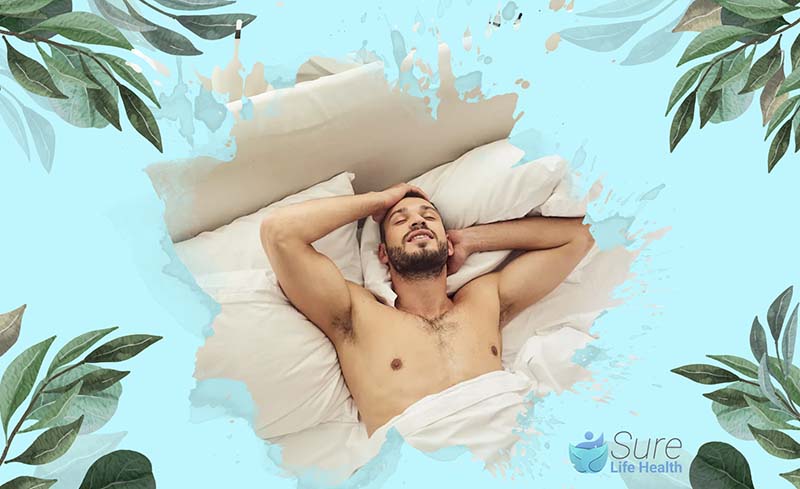
The Impact of Clothing on Testosterone Levels During Sleep – The Science
The attire we choose for bedtime could indeed play a role in our testosterone levels during sleep. This connection is rooted in the relationship between body temperature and hormone production. Studies suggest that testosterone production during sleep may benefit from a cooler body temperature while being hindered by a warmer one.
Clothing, particularly if it’s bulky or constrictive, has the potential to elevate body temperature, thus impeding the body’s ability to cool down during sleep. Consequently, this could affect testosterone production. Hence, the notion of sleeping naked arises as a potential solution to help maintain a lower body temperature and enhance hormone regulation during sleep.
However, it’s essential to acknowledge that we still lack a comprehensive understanding of how clothing directly impacts testosterone levels during sleep. While some studies have hinted at potential connections, more research is needed to firmly establish the link between clothing and hormone production during sleep.
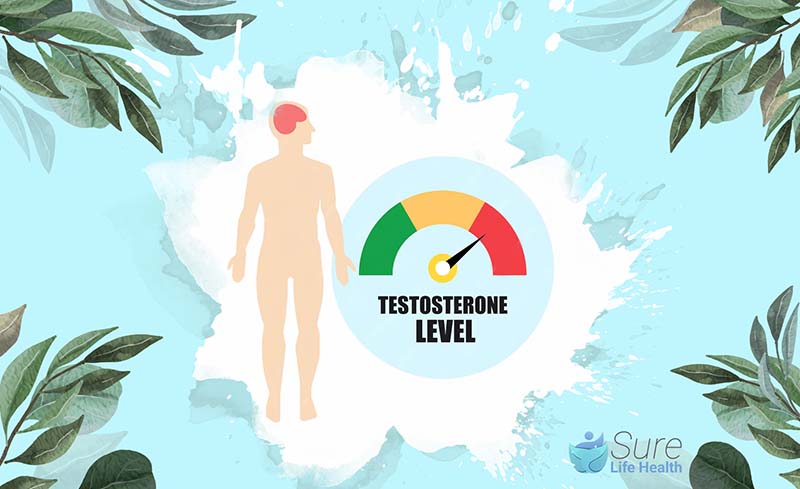
Other Benefits of Sleeping Naked
Sleeping naked offers a range of additional benefits beyond its potential impact on testosterone levels. One significant advantage is improved sleep quality. When we sleep without clothing, our bodies can regulate temperature more effectively, leading to a more comfortable and restful night’s sleep. Better sleep quality can positively influence mood, cognitive function, and overall productivity.
Moreover, going to bed in the buff can promote skin health. Without clothing, the skin can breathe freely, reducing the risk of infections or irritations often caused by tight or constrictive clothing. Additionally, sleeping naked helps regulate the body’s moisture levels, decreasing excessive sweating and the growth of bacteria that thrive in warm, moist environments.
Furthermore, sleeping without clothes can enhance intimacy and sexual satisfaction for couples. Skin-to-skin contact during sleep promotes the release of oxytocin, a hormone associated with bonding and feelings of closeness. This increased release of oxytocin fosters a deeper emotional connection between partners, contributing to a healthier and more fulfilling relationship.
How to Optimize Testosterone Levels During Sleep
While sleeping naked might potentially increase testosterone levels, there are other factors to consider to optimize hormone production during sleep. Here’s some advice to naturally boost testosterone levels:
- Maintain a consistent sleep schedule: Keeping a regular sleep schedule helps regulate hormone patterns, including testosterone production.
- Create a sleep-friendly environment: Ensure your bedroom is quiet, dark, and comfortable to promote restful sleep.
- Minimize exposure to artificial light before bed: Artificial light before bedtime can disrupt melatonin production and hinder sleep quality. Consider using blue light filters or avoiding screens before sleep.
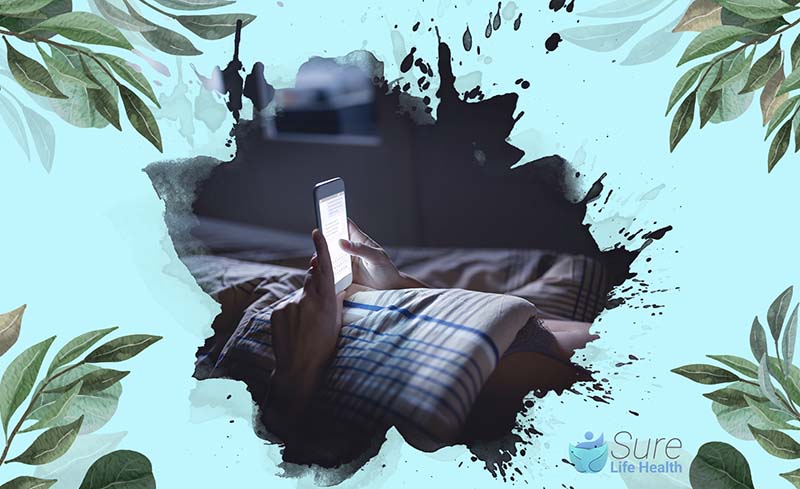
- Engage in regular physical activity: Regular exercise has been shown to elevate testosterone levels. Include physical activity in your routine to support hormone regulation.
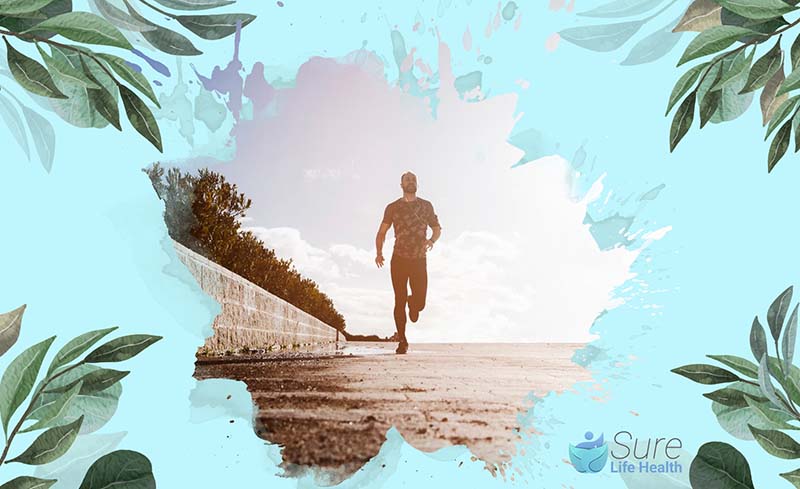
- Manage stress levels: Chronic stress can negatively impact hormone production. Incorporate stress-relieving activities like yoga, meditation, or deep breathing exercises to reduce stress levels.
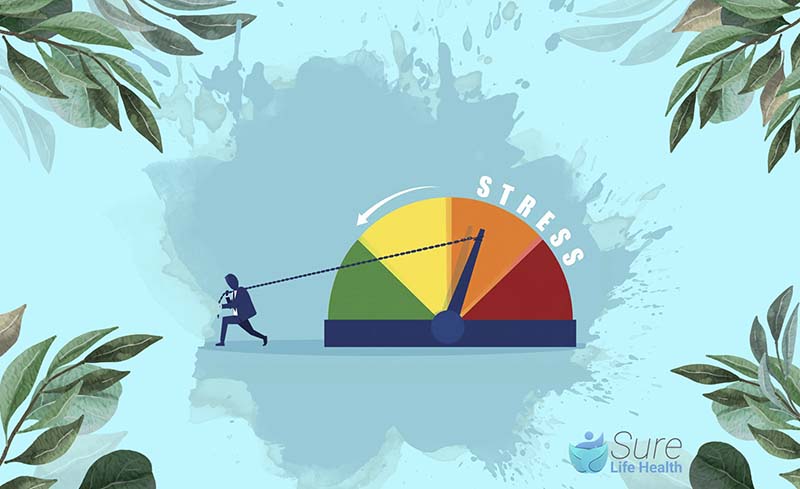
By implementing these tips into your bedtime routine, you can not only optimize testosterone levels but also enhance overall health and well-being.
Relationship Between Sleep and Testosterone
During sleep, testosterone levels typically follow a natural rhythm of fluctuating throughout a 24-hour cycle. Studies indicate that testosterone levels tend to peak around 8 a.m. and reach their lowest point around 8 p.m., with sleep playing a crucial role in regulating this cycle of testosterone production.
Insufficient sleep and sleep disorders such as sleep apnea have been associated with disruptions in testosterone levels. Conversely, irregular testosterone levels may also contribute to sleeping problems. This suggests a bidirectional relationship between sleep and testosterone, where the quality and duration of sleep can impact testosterone levels, and vice versa.
Does Lack of Sleep Affect Testosterone?
There is indeed evidence suggesting that inadequate sleep can lead to lower testosterone levels, although findings across studies are not entirely consistent.
Sleep plays a crucial role in regulating the daily rhythm of testosterone production, and disruptions in sleep can disturb this cycle. For instance, a study involving healthy young males revealed that sleeping less than five hours per night for a week was associated with a decrease of 10-15% in testosterone levels.
Additionally, several studies have identified a correlation between obstructive sleep apnea (OSA) and reduced testosterone levels. However, it remains uncertain whether OSA directly causes low testosterone levels. Nevertheless, some evidence suggests that treating OSA may lead to an increase in testosterone levels.
Conclusion
In conclusion, exploring the question ‘Does Sleeping Naked Increase Testosterone?’ reveals that sleep’s role in regulating testosterone is complex. Although poor sleep may lower testosterone levels, studies don’t uniformly support this. Regardless, prioritizing healthy sleep habits is essential for hormonal balance and overall health.
Be sure to explore more insightful blogs from Sure Life Health, where we continue to shed light on the latest trends and breakthroughs in health and wellness.
Professor Gaye Cunnane, PhD, MB, FRCPI
As the Director of Health and Wellbeing at RCPI, Professor Gaye Cunnane is at the helm of initiatives aimed at enhancing the health and well-being of RCPI Trainers and Trainees. Her role extends beyond administration; she is also a respected clinical professor of rheumatology and a consultant rheumatologist at Trinity College Dublin (TCD) and St James’s Hospital. Prof. Cunnane’s medical journey began at TCD, where she graduated from medical school, and her path has been marked by both clinical and academic excellence.
After completing her basic clinical training in medicine, she embarked on PhD studies at University College Dublin and St Vincent’s University Hospital. Her research during this period was focused on prognostic markers in early inflammatory arthritis, a project that saw her collaborating with esteemed universities across Europe, including in Switzerland, The Netherlands, the UK, and Sweden.
Prof. Cunnane’s career took her to the University of California, San Francisco, where she spent three years delving into research on new treatments for lupus. Her academic prowess led her to the University of Leeds in 2001 as a senior lecturer, before returning to Ireland in 2003 to assume her current roles. She has also served as the National Specialty Director for Rheumatology training in Ireland, Programme Director for Basic Specialist Training with RCPI, and as a past President of the Irish Society for Rheumatology.
PUBLISHED ARTICLES
“Rheumatic disease differentiation using immunoglobulin G sugar printing by high-density electrophoresis”: Published in The Journal of Rheumatology, this study reflects her in-depth investigation into rheumatic diseases.
“Benefits of exercise in patients with rheumatoid arthritis: a randomized controlled trial”: This research work, highlighting the positive impact of exercise on rheumatoid arthritis, underscores Prof. Cunnane’s dedication to practical, patient-centered research.
Additionally, Prof. Cunnane has made notable contributions to the Annals of the Rheumatic Diseases, discussing early referral, diagnosis, and treatment of rheumatoid arthritis. She has also been involved in a study on the NCBI platform investigating exercise benefits in rheumatoid arthritis patients.
Professor Gaye Cunnane’s career is a testament to her commitment to improving patient outcomes in rheumatology through rigorous research, clinical excellence, and dedicated teaching. Her work continues to influence the field of rheumatology, both in Ireland and internationally.

